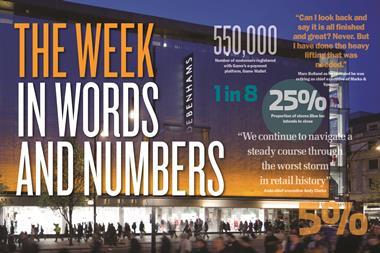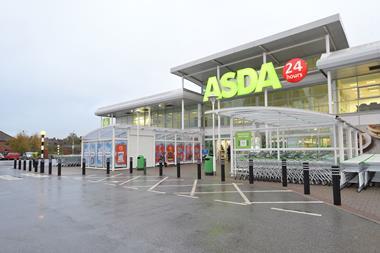British shoppers’ spending power grew at its slowest rate for 14 months in December following a drop in wage growth and increased inflation.
The average UK household had £194 disposable income every week in December, up £13 compared to the previous year.
But the 7.2% year-on-year uplift in spending power marked the lowest percentage increase since October 2014, according to the Asda Income Tracker.
The average figure was driven down by the Northeast and Northern Ireland, which were the only two areas of the UK not to report double-digit growth, recording weekly increases of £8 and £9 respectively.
Households in London had the most disposable income of £259 a week – up £15 on the year. But the East of England continued to narrow the gap after a £20 rise in average weekly disposable income compared to December 2014 drove spending power up to £218.
A large chunk of consumers’ additional cash was splashed on air fares, which jumped 46% in price between November and December – the largest December price hike since 2002, Asda said.
But the price of fuel in the UK continued to drop after Asda and its big four rivals slashed the cost of petrol and diesel at the pumps, sparking a 3.4p fall per litre of petrol between November and December.
‘Erratic spending patterns’
Asda boss Andy Clarke said: “Throughout 2015, falls in commodity prices and a strengthening pound contributed to higher discretionary income in households across the UK. We’ve also passed a milestone for the British economy, with inflation remaining at zero for a full calendar year for the first time since records began.
“Although falling vehicle fuel costs are putting extra pounds in consumers’ pockets, this doesn’t necessarily translate to an increase in household spending”
Andy Clarke, Asda
“Despite these positive economic indicators, spending patterns remain erratic. Although falling vehicle fuel costs are putting extra pounds in consumers’ pockets, this doesn’t necessarily translate to an increase in household spending.
“It’s encouraging to see that the regional picture was positive overall, but with varying contributing factors.
“Northern Ireland again experienced the fastest growth in discretionary income, but still remained disproportionately behind the rest of the UK. In comparison Scotland’s growth slowed as a result of increased pressure on the public sector and the price of oil.”
Cebr economist Sam Alderson added: “Against a backdrop of global economic turbulence, households across the UK continued to see spending power head higher, supported by another month of negative essential item inflation.
“Global growth concerns have already sent oil prices lower and are likely to hold interest rates lower for longer. While this should help provide further boosts to spending power in 2016, the uncertainty means that families can be forgiven for exercising some caution in terms of spending any additional spare cash.”


























No comments yet